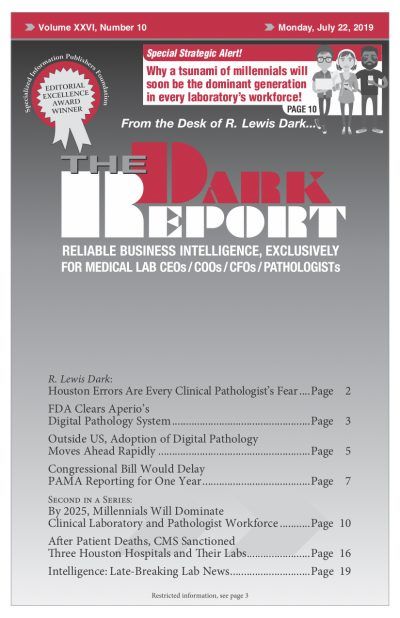CEO SUMMARY: For all laboratories that must report private payer price data under the Protecting Access to Medicare Act (PAMA), a new bill in congress would delay the next round of data reporting for one year and require the National Academy of Medicine to recommend ways to improve the data collection and market-rate setting processes …
Bill Would Delay PAMA Reporting for One Year Read More »
To access this post, you must purchase The Dark Report.


